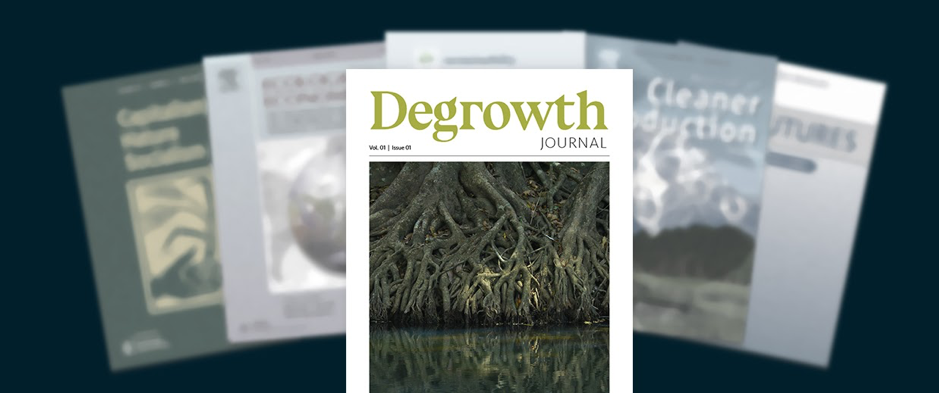An open letter presented by Félix Garnier at the Pontevedra Conference on June 19th 2024, at the open mic session.
Colleagues, friends, fellow humans,
There is increasing frustration among degrowth activists that the general trend of the degrowth movement remains heavily European-centered, and overly academic. Thousands of degrowth activists struggle in the shadows of capitalism to contribute to the movement, while having to make ends meet on little income, or no income whatsoever. Recognition for effort remains strongly coupled with academic status, seniority or popularity. In a true egalitarian movement, merit and status would have no place[i], and would be recognized for what they really are: delusional creations of society.
Most degrowth literature remains deeply captured by jargon and abstract theoretical pirouettes. Academic jargon remains largely impenetrable for many trade unionists, the working class in general, and specifically many people on the barricades of life in the majority world. Perhaps a PhD theoretical researcher may not understand the work of a master electrician, and perhaps our master electrician may not enjoy the language of the symbiotic strategies of non-reformist reforms. This comparison of professions is not meant to suggest anti-intellectualism, or to elevate one profession over another. This is a call for solidarity and egalitarian recognition of effort.
There has been little progress made towards in person engagement with the working class, outside published theory and lively theoretical debates, after a decade of conferences. While we understand the necessity - and some argue, the inevitability - of degrowth, the public relations work of degrowth remains lacking, in spite of the efforts of many learned scholars and activists.
These realities inspire us to make the following five proposals addressed to all degrowth scholars, activists, and practitioners:
1.Decouple recognition from status and merit. The effort to build the degrowth movement is distributed unequally. It is also constructed on unequal histories. Some were lucky to become well-paid academics, some are toiling on assembly lines, on farms, or in cubicles. We all share equal finitude and equal uniqueness as human beings. Comradery and understanding should be based on egalitarian principles of finitude and uniqueness, and not on status or socio-geographical placement in life.
2.Create a Solidarity Fund. Contribution would be voluntary, but we strongly believe this would be a good way to support the highlighting of more diverse voices within the Degrowth community. Walking the talk has more chance of changing the world, than just talking the talk, or writing the talk. The Solidarity Fund would be managed by people selected by sortition, and rotated frequently. We mean to leave the pool of selection open for further discussion. Several pools could be considered: people who contribute with money, or registered members of the IDN, or anyone who contributes to the Global Policy Cloud with an entry (see link below), including people from the Global South. We lean towards a pool that does include non-contributors. The administrators of the fund would distribute money based on transparent decisions. All self-declared degrowthers could contribute 1% of pretax income up to $50,000 or equivalent, 3% from what exceeds $50,000 up to $100,000, or equivalent, and 100% of all income that exceeds $100 000, or equivalent. This proposal is inspired by the work of trade unions, and should receive significant support within the degrowth movement, since maximum income and maximum wealth are among top degrowth policies.
3.Make proactive efforts to engage with the working class, indigenous peoples, environmental activists, and people of the majority world. Invite participants to degrowth conferences by financing their participation in person, or remotely, through the Solidarity Fund.
4.Promote actively and support collaboration within the movement - such as the work of the International Degrowth Network and all its members - at degrowth events and in degrowth literature, as much as possible. Solidarity is about building bridges, and mutual support. It seems like too often the academic community is not willing to give more space or publicity to activists and working-class people. This needs to change. When you show up for them, they will show up for you, and for us.
5.Create or support boots-on-the-ground missions of paid activists that would engage with the working class, indigenous people, environmental activists, people of the Global South, and local communities. These professional activists will organize teach-learn-listen events with the purpose of building bottom-up frameworks of policy, vision, and strategy that would convince governments to act, the ruling class to back down, and the citizens of the world to rise up. These events may take the form of townhall meetings where speakers get to present issues, then larger discussions may begin where everyone interacts with everyone else to teach-learn-listen from each other. Activists can be the organizers of these events. They would act as a conduit. These will be events of equals. Input from these events can be collected in a policy cloud, documents, recordings, etc., and maintained in the public domain for research, political action, and strategy, for the use of any organization, network, or alliance that works to phase out capitalism.
Colleagues, friends, fellow humans, we are in this struggle together. Let us remember that it is the words of the barricades, of the poor, of the downtrodden that changes the world. The words of the Peoples Agreement of Cochabamba. The words of the Red Deal. We CAN work together. We SHOULD work together as equals. We share one humanity.
----------
If you support the proposals please add your name here: https://docs.google.com/document/d/17GFNMutENY0NifmDlQgJAwkobt2wvAHh01X1qMpQC9o/edit
A proposal for the creation of a Global Policy Cloud can be seen here: https://znetwork.org/znetarticle/a-crowd-sourced-global-policy-cloud-for-a-world-revolution/
[i] This is a reference to determinism. For a broader conversation see Robert Sapolsky – Determined, Ingrid Robeyns – Limitarianism, Tom Malleson – Against Inequality

Oliver Lewis argues that the degrowth movement must not shy away from engaging with its critics

A degrowth strategy for societal transformation needs to combine several approaches, reflecting the plurality of degrowth as a movement. To support the myriad of bottom-up alternatives that are already out there, degrowth should put a special emphasis on strategies which build power outside of the capitalist system, be very cautious of those which merely seek to tame capitalism, but also integr...

Degrowth is a thriving academic field, but one without a home. It can be a struggle to publish degrowth-related articles in the current journal environment. If successful, authors must often surrender the ownership of their work to commercial journals. After more than a decade of degrowth research, and with a growing number of scholars engaged in the field, we believe the time has come to start...